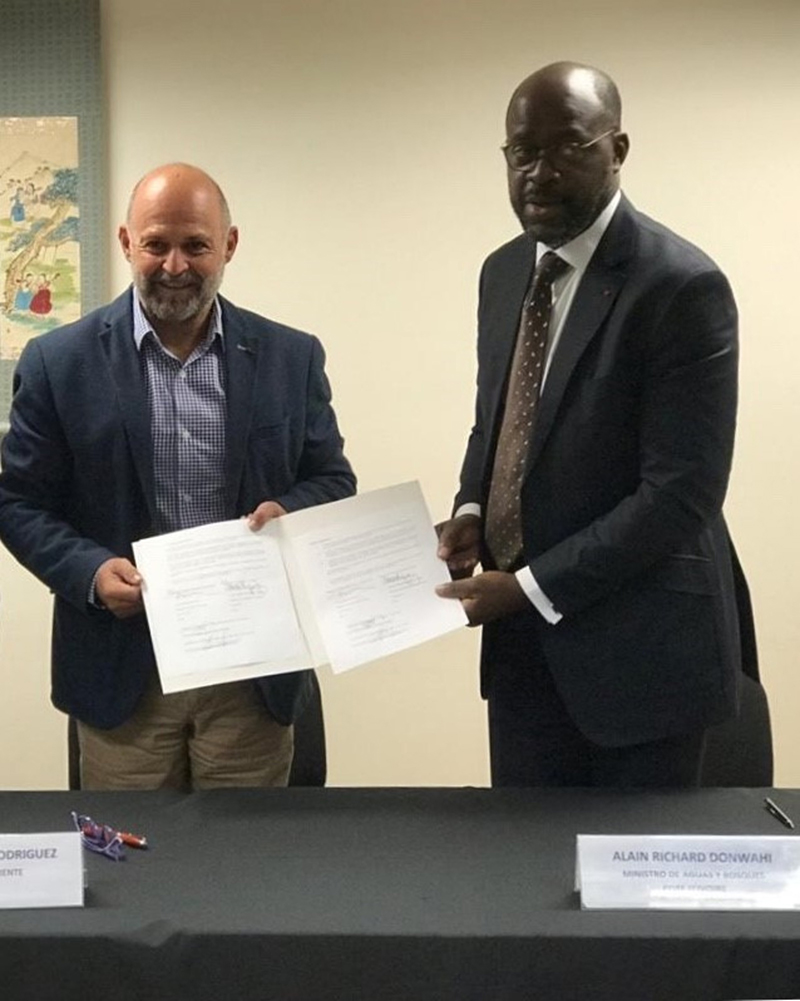Côte d'Ivoire participated in a South-South Knowledge Exchange that took place from July 27 to August 1, 2019 in Costa Rica. The event focused on sharing experiences around capacity building for REDD+ implementation and financing approaches for the forest sector.
The exchange was jointly supported by UNDP Climate and Forests, UNDP Côte d'Ivoire and UNDP Costa Rica, and it included the participation of high-level government officials from Côte d'Ivoire including the Minister of Water and Forests, government directors and advisors and UNDP officials. The exchange coincided with a visit by a high-level delegation from Korea, led by the Minister of Korea Forest Service. Both the Côte d'Ivoire and Korean delegations conducted productive meetings and field trips hosted by the Vice-President of Costa Rica and the Minister of Environment.

Costa Rica is a world model for forest conservation. The country has moved from 29 percent forest cover in 1996 to more than 50 percent today. This remarkable achievement owes much to a high -level of public awareness, sustained political will and linking forest conservation with the expansion of social and economic benefits. Côte d'Ivoire, on the other hand, is one of the world’s top cocoa producers and has lost nearly 85 percent of its forests since 1960. However, the country is now committed to saving its remaining forests. President Alassane Ouattara signed the UN New York Declaration on Forests in 2014 and committed to restoring national forest levels to 20 percent by 2030.
Both Côte d'Ivoire and Costa Rica share a similarly ambitious vision for forest conservation and expansion. This common vision inspired a cross-country partnership that will strengthen local ownership and leadership of development issues by providing much-needed support. At the conclusion of the exchange, the Minister of Environment of Costa Rica and the Minister of Water and Forests for Côte d'Ivoire signed a cooperation agreement in San Jose, expressing their interest in continued cooperation on forest conservation and forestry development. The cooperation between the two countries links the protection of forests with the fight against climate change.
The cooperation agreement will include continued engagement, regular consultations and a joint capacity building programme that will commence implementation in 2019. The partnership will ultimately act as a framework to intensify technical and political cooperation, share ideas, experiences and lessons and articulate a path forward for transforming the forest sector and helping to realize the ambitions that sit at the heart of the SDGs.

The lessons and experiences gained from the Costa Rica exchange will be further digested to adapt to the context, traditions and options in Côte d'Ivoire to create a knowledge base and to forge a strategic direction for accessing finance options for the Côte d'Ivoire New Forest Policy. The cooperation agreement highlights key activities that will facilitate learning and the exchange of best practices between Côte d'Ivoire and Costa Rica on REDD+, PES (payments for environmental services) and eco-tourism. It will also encourage the joint exploration of public-private partnerships and setting up agreements with international corporations involved in commodity supply chains such as cocoa, palm oil, coffee. UNDP will facilitate these partnerships and serve as the broker in the transfer of knowledge, expertise, products, services and resources.



